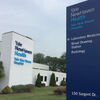Processing Your Payment
Please do not leave this page until complete. This can take a few moments.
-
News
-
Editions
-
- Lists
-
Viewpoints
-
HBJ Events
-
Event Info
- 2024 Economic Outlook Webinar Presented by: NBT Bank
- Best Places to Work in Connecticut 2024
- Top 25 Women In Business Awards 2024
- Connecticut's Family Business Awards 2024
- What's Your Story? A Small Business Giveaway 2024 Presented By: Torrington Savings Bank
- 40 Under Forty Awards 2024
- C-Suite and Lifetime Achievement Awards 2024
- Connecticut's Health Care Heroes Awards 2024
-
-
Business Calendar
-
Custom Content
- News
-
Editions
View Digital Editions
Biweekly Issues
- April 29, 2024
- April 15, 2024
- April 1, 2024
- March 18, 2024
- March 4, 2024
- February 19, 2024
- February 5, 2024
- January 22, 2024
- January 8, 2024
- + More
Special Editions
- Lists
- Viewpoints
-
HBJ Events
Event Info
- View all Events
- 2024 Economic Outlook Webinar Presented by: NBT Bank
- Best Places to Work in Connecticut 2024
- Top 25 Women In Business Awards 2024
- Connecticut's Family Business Awards 2024
- What's Your Story? A Small Business Giveaway 2024 Presented By: Torrington Savings Bank
- 40 Under Forty Awards 2024
- C-Suite and Lifetime Achievement Awards 2024
- Connecticut's Health Care Heroes Awards 2024
Award Honorees
- Business Calendar
- Custom Content
Man admits $590,000 charity fraud against UTC

A man who has worked for a Raytheon Technologies subsidiary in North Carolina pleaded guilty Monday to defrauding more than $590,000 from United Technologies before the Raytheon merger by exploiting a company program to match charitable donations by employees.
Steven Kent Strange, 50, of Bailey, North Carolina pleaded guilty in U.S. District Court in Hartford to a single count of wire fraud in a hearing held via video conference, U.S. Attorney John H. Durham announced.
Federal sentencing guidelines call for Strange to get a prison term between 33 and 41 months, or 2¾ years to almost 3½ years, when Judge Michael P. Shea sentences him Sept. 14, according to Strange’s written plea agreement.
But both sides reserve the right to seek a sentence outside that range. Specifically, the defense plans to seek a more lenient sentence based on the health of Strange and his wife, his age, and his lack of a criminal record, the plea agreement says.
Strange has worked for Collins Aerospace, a Raytheon Technologies subsidiary in North Carolina, as a senior supervisor in its fire extinguisher division, making about $90,000 a year, according to an affidavit by FBI Special Agent Christopher Halpin.
A call to Collins Aerospace for information on his employment status wasn’t immediately returned.
Strange started working for Collins around 2014, according to the agent. Six years earlier, in 2008, he had established a nonprofit corporation called the Housing Development Foundation of North Carolina Inc.
United Technologies would match employee charitable contributions up to $25,000 annually.
Strange submitted numerous forged cashier’s checks made out to the Housing Development Foundation for reimbursement by UTC. Many of the supposed donations were in his name but others were in the names of other Collins Aerospace employees, which he used without their knowledge, he admitted in his plea agreement.
The forged cashier’s checks were never deposited in the Housing Development Foundation’s bank account, but the UTC matching payments were, according to the agent.
Strange admitted in his plea agreement that he used “a large portion of the payments for personal expenditures.” The agent reported that this spending was for such things as “fast food restaurants, satellite television, and credit cards.”
The forgeries weren’t particularly sophisticated. Although the forged cashier’s checks had logos of different banks on them, they all had “Santa Barbara Bank and Trust” printed in small type in the lower right-hand corner, according to the agent. That bank changed its name in 2011 and ceased to exist as a result of a merger in 2012, the agent reported.
In addition, all the checks had the same routing and account numbers on them, and two bore the same bank official’s signature even though they supposedly came from different banks, he added. In one case, a bank logo was crooked on a check, according to the agent.
Strange admitted that UTC paid $585,000 to the Housing Development Foundation as a result of the fraud and paid a vendor $6,257 to process the requests. His plea agreement calls for him to pay restitution, but he is represented by the federal public defenders, indicating that he has limited ability to pay.

2022 Giving Guide
This special edition informs and connects businesses with nonprofit organizations that are aligned with what they care about. Each nonprofit profile provides a crisp snapshot of the organization’s mission, goals, area of service, giving and volunteer opportunities and board leadership.
Learn more
Subscribe
Hartford Business Journal provides the top coverage of news, trends, data, politics and personalities of the area’s business community. Get the news and information you need from the award-winning writers at HBJ. Don’t miss out - subscribe today.
Subscribe
2024 Book of Lists
Delivering Vital Marketplace Content and Context to Senior Decision Makers Throughout Greater Hartford and the State ... All Year Long!
Read Here-
2022 Giving Guide
This special edition informs and connects businesses with nonprofit organizations that are aligned with what they care about. Each nonprofit profile provides a crisp snapshot of the organization’s mission, goals, area of service, giving and volunteer opportunities and board leadership.
-
Subscribe
Hartford Business Journal provides the top coverage of news, trends, data, politics and personalities of the area’s business community. Get the news and information you need from the award-winning writers at HBJ. Don’t miss out - subscribe today.
-
2024 Book of Lists
Delivering Vital Marketplace Content and Context to Senior Decision Makers Throughout Greater Hartford and the State ... All Year Long!
ABOUT
ADVERTISE
NEW ENGLAND BUSINESS MEDIA SITES
No articles left
Get access now
In order to use this feature, we need some information from you. You can also login or register for a free account.
By clicking submit you are agreeing to our cookie usage and Privacy Policy
Already have an account? Login
Already have an account? Login
Want to create an account? Register
Get access now
In order to use this feature, we need some information from you. You can also login or register for a free account.
By clicking submit you are agreeing to our cookie usage and Privacy Policy
Already have an account? Login
Already have an account? Login
Want to create an account? Register






0 Comments